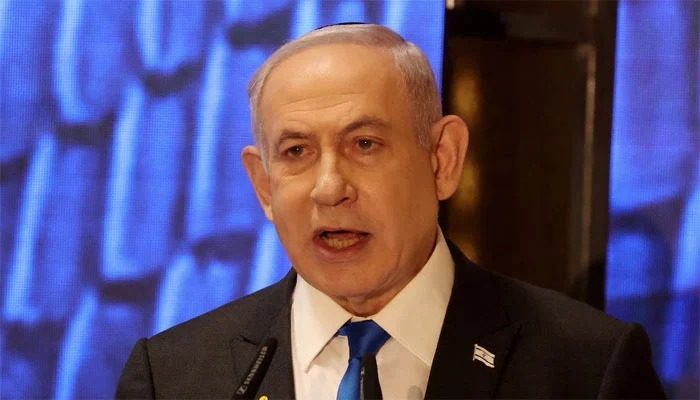Netanyahu disclosed that he had personally insisted on the operation to eliminate Nasrallah, despite opposition from former Defense Minister officials who had disagreed with the action

News Desk
TEL AVIV: In a surprising revelation, Israeli Prime Minister Benjamin Netanyahu has confirmed Israel’s involvement in a series of controversial attacks against Hezbollah in Lebanon, including the operation that led to the assassination of the group’s leader, Hassan Nasrallah. This marks the first time a senior Israeli official has publicly acknowledged the country’s direct role in these highly sensitive operations.
During an Israeli cabinet meeting, Netanyahu admitted that Israel had orchestrated the attacks on Hezbollah’s communication devices, as well as the targeted assassination of Nasrallah. His statement provided an unprecedented level of transparency regarding these covert operations, which had long been speculated but never officially confirmed. Netanyahu further disclosed that he had personally insisted on the operation to eliminate Nasrallah, despite opposition from former Defense Minister officials who had disagreed with the action.
His persistence in pushing for the operation has raised concerns and prompted new debates over Israel’s broader strategy in the region. The admission shines a stark light on the intensity of Israel’s efforts to undermine Hezbollah, a Shiite militant group backed by Iran, which has long been a source of tension between Israel and Lebanon. The attacks on Hezbollah’s communications infrastructure and the high-profile assassination of Nasrallah are part of a wider Israeli strategy to weaken Hezbollah’s command and control capabilities, and to maintain the balance of power in the region, which has been increasingly volatile.
However, Netanyahu’s admission also raises profound questions about the broader implications of these actions for regional stability. By publicly taking responsibility for such high-stakes operations, Israel has not only escalated its ongoing conflict with Hezbollah but also signaled a readiness to continue its covert and overt military engagement in Lebanon. The consequences of this strategy are likely to reverberate throughout the Middle East, with the potential to intensify existing tensions and fuel further hostilities between Israel and Hezbollah, as well as other regional actors.



